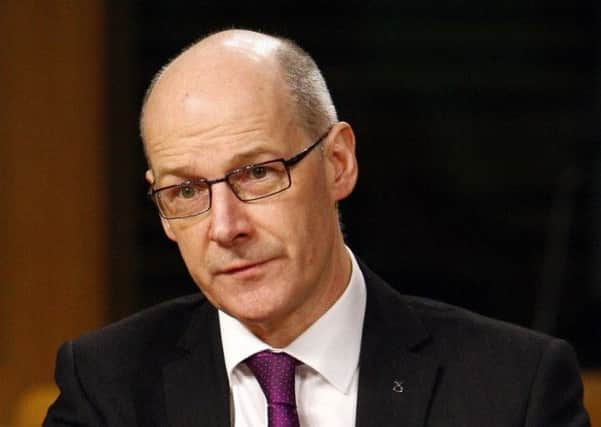MSPs back John Swinney's plans for Scottish income tax


But members of the Scottish Parliament’s Finance Committee have said there needs to be a “wide ranging debate across Scotland on taxation policy” when these responsibilities are increased as a result of the Scotland Bill.
The committee also claimed there was a “lack of transparency” about how Scotland’s block grant from Westminster will be reduced when these new powers - which include control over income tax rates and bands - are devolved.
Advertisement
Hide AdAdvertisement
Hide AdBut it backed Deputy First Minister John Swinney’s favoured method for how this is to be achieved, saying that indexed deduction per capita should be used for the calculations as this would better account for different rates in population growth in Scotland and the rest of the UK.
The devolution of new financial powers “fundamentally changes the nature of the budget process”, the committee said in its report on the 2016-17 draft Scottish budget.
For the first time ever, the budget process has seen Holyrood ministers play a part in setting income tax north of the border. Under changes brought in as part of the 2012 Scotland Act, they are required to set a Scottish rate of income tax, which will come into place on April 6.
Income tax will be reduced by 10p in the pound for Scottish taxpayers but they will then have to pay the new Scottish rate.
Mr Swinney announced in December this will be 10p, keeping income tax rates the same north and south of the border.
Committee convener Kenneth Gibson said: “A lot of the committee’s attention has focused, rightly, on the Scottish Government’s taxation plans for the year ahead.
“This is the first time we’ve had to consider a Scottish Rate of Income Tax and, although the proposal is for this to be maintained at its existing level for this year, the additional financial powers expected to be delivered by the Scotland Bill mean that, in the future, taxation will account for 48% of devolved expenditure.
“It’s important that people have the opportunity to contribute to a national debate on how these new powers should be used.”
